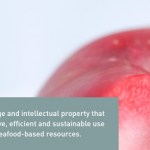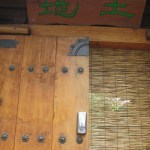sustainability
Image of gilthead sea bream By Roberto Pillon - http://www.fishbase.us/photos/UploadedBy.php?autoctr=13070&win=uploaded, CC BY 3.0, https://commons.wikimedia.org/w/index.php?curid=20825139
A new study published in the American Journal of Physiology - Regulatory, Integrative and Comparative Physiology explored the effects of exercise on growth and hormone regulation in gilthead sea bream (Sparus aurata). The main hormones that regulate growth are, perhaps not surprisingly, growth hormone and insulin-like growth factor. Researchers discovered young gilthead seam bream that underwent…
If there is anything that the past few decades of research and study of major global challenges tells us, it is that truly effective solutions to sustainability challenges require truly integrated approaches across disciplines, fields of study, data sets, and institutions. We are not going to solve 21st century global problems with 20th century tools.
The planet is faced with a wide range of regional and global threats: air and water pollution, loss of biodiversity, a rapidly changing climate and new risks from extreme weather events, energy and food security, conflicts over resources…
In a new study just published by the journal Sustainability Science (Springer), analysis from the Pacific Institute (with lead author Dr. Juliet Christian-Smith, now at the Union of Concerned Scientists) shows that many of the fundamental responses of California water users to severe drought actually make the state’s overall water conditions worse – that in the end, many of these actions are “maladaptations.”
Water is a complex resource; and water problems are an equally complex mix of natural resource, technology, social, economic, and political conditions. When water is limited,…
Fair working standards for construction workers and financial profit for developers aren't incompatible, according to a new report from Texas' Workers Defense Project. In fact, consumers are actually willing to pay more to live in places built on principles of safety, economic justice and dignity.
Released this week in collaboration with the University of Texas' Center for Sustainable Development, "Green Jobs for Downtown Austin: Exploring the Consumer Market for Sustainable Buildings" studied consumer attitudes toward sustainable construction jobs and explored the market for certification…
On Saturday, May 18, the second international "Fascination of Plants Day" will take place under the umbrella of the European Plant Science Organization (EPSO). Join in to see for yourself how fascinating plant are. Show your support for plant science, which is critical for sustainable food production, biobased medicines, and energy. There are 54 countries participating in the Fascination of Plants Day, with over 650 institutions involved and 950 events planned!
Check out this interactive map that shows all of the participating countries.
Here at the University of California,…
I read an interesting article today on how eating insects may save the world. The rationale: eating insects are not only nutritious (high in protein and fat), but would also help to save the Earth's resources as the human population continues to expand.
According to Aaron T. Dossey, a biochemist, entomologist, and founder and owner of All Things Bugs, humans consume ~40% of potential terrestrial productivity and livestock currently takes up ~30% of the Earth's land (pasture and growing feed). With the growing population of humans, food consumption will necessarily increase. He sees insects…
by Kim Krisberg
When most of us think of sustainability and construction, the usual suspects probably come to mind: efficient cooling and heating, using nontoxic building materials, minimizing environmental degradation — in other words, being green. But in Austin, Texas, a new effort is working to expand the definition of sustainability from the buildings themselves to the hands that put them together.
Launched about a year ago, the Workers Defense Project's Premier Community Builders program certifies major new developments as sustainable for workers. That means making sure construction…
The New Earth Archive is a resource network of powerful, inspiring books on climate change, sustainability, social justice, and human nature.The students ask you to vote for up to 15 of your favorite books.
So pleased, Tomorrow's Table made the list!
http://www.surveygizmo.com/s3/808430/neweartharchive-ballot
Whoie Earth Discipline, by Stewart Brand is also on the list and so are many other great books.
Please spread the word. Thanks for your support.
The New Earth Archive was developed by students at the New Jersey Institute of Technology, and supported by Paul Hawken and other leading…
The New Earth Archive is a resource network of powerful, inspiring books on climate change, sustainability, social justice, and human nature.The students ask you to vote for up to 15 of your favorite books.
So pleased, Tomorrow's Table made the list!
http://www.surveygizmo.com/s3/808430/neweartharchive-ballot
Whoie Earth Discipline, by Stewart Brand is also on the list and so are many other great books.
Please spread the word. Thanks for your support.
The New Earth Archive was developed by students at the New Jersey Institute of Technology, and supported by Paul Hawken and other leading…
Applause for Plant Physiologist Helen Stafford who left the Reed College Biology Department $1M. As a woman scientist in the 1950s, Stafford was ineligible for many jobs. Reed College, not deterred by her sex, offered her a position. She went on to establish a successful career and inspired many young scientists. Here is a short story of how she influenced my career.
The windowless room, dank an dark, was not an obvious place for inspiration. I took notes, wondering if I would be able to glean anything meaningful from Professor Helen Stafford's (1922-2011) meandering lecture. I was skeptical…
Renewable energy sources could allow for a prudent decrease in CO2 emissions while still powering a populous, electrified global economy. On The Pump Handle, Mark Pendergrast examines the proverbial canary in the coal mine, Japan. Wary of imported fossil fuels and burned by nuclear disaster, Japan is looking toward solar, geothermal, wind, water, and biomass-powered alternative energy sources. Wind, for example, could provide 10% of Japan's energy needs, but with blade-busting typhoons and fierce winter lightning storms, turbines must be more robust and adaptable than ever. Mark writes, "…
On Casaubon's Book, Sharon Astyk asks if we can stomach a new kind of cuisine— in case, you know, a massive volcanic eruption wipes out all our staple grains. Instead of wheat, corn and rice, "we probably would begin getting comfortable with acorn pancakes and turnip stew with taro dumplings." But Sharon says that even barring catastrophe, "something *is* happening, something disastrous. The wheat is being grown often on dry prairie soils that should never be plowed at all. The corn and soybeans are being grown continuously in the midwest at a high cost to both topsoil and the ability of…
The journalist Marc Gunther recently posted a thoughtful article discussing public perceptions of the role of organic agriculture in a future sustainable food system.
He found that many consumers believe that there are only two ways to produce food:
"The first can be described, depending upon who's talking, as big, fast, modern, conventional, industrial, intensive, chemical, genetically-modified, processed and global. It's the system that delivers most of the food that most Americans eat."
"The second is described as organic, sustainable, local, small-scale, family-owned, natural, agro-…
I walked into the gleaming 'Orchard in a box", a closed greenhouse where no pollen can flow outside. The apple was red, red, red inside and out and I wanted it. But because I was in New Zealand, where experimenting with genetically engineered food is highly regulated, tasting was banned.
How was this forbidden fruit created? By overexpression of an apple transcription factor in the white-fleshed, tasty Royal Gala variety. The transcription factor was isolated from an apple that has both red flesh and red skin, that occurs in Central Asia. However, these apples are normally quite bitter…
Industrial food production separates us from our food, increasing the distance from living thing to food product. As factories continue to import corn and export almost everything we eat, writers like Michael Pollan urge us to eat "real" food, and projects like the Slow Food movement have gained over 100,000 members who strive to preserve traditional and regional ways of growing and cooking food. At the same time, a growing number of young contemporary artists also explore the distance between us and what we eat by bringing secretions of the human body into food production.
Human secretions…
Click here to see the Dr. Oz show on GE crops with yours truly.
I tried to provide a science-based perspective to the audience.
It was a tough go, though, because one of the other panelists (Jeffery Smith, a former Iowa political candidate for the Natural Law Party with no discernible scientific or agricultural training) believes that eating GE crops causes infertility, organ damage and endocrine disruption. Of course, the scientific evidence for these statements is about as strong as saying that looking at carrots will give you brain tumors.
Can the audience glean that from the information…
On Monday afternoon, yours truly will appear with Dr. Oz, "America's doctor," (the tag bestowed on him by no less than Oprah Winfrey) before a live audience in New York City. Although I have never seen the show, a New York Times magazine article written by the brilliant Frank Bruni, suggests that the show, and Dr. Oz himself, are both pretty entertaining.
As one of the most accomplished cardiothoracic surgeons of his generation, Mehmet Oz has transplanted lungs and repurposed hearts; implanted mechanical devices to provide the pump and pulse for patients that cannot manage that on their own;…
I don't like Prince Charles much, but that is just because of all the gossip the world was exposed to when Lady Di still walked this earth, so I can hardly be sure if he deserves that feeling.
So what? Well, it seems Charles is very into eco-friendly sustainability and all that dirty hippy stuff. I was offered a free copy of his new book "Harmony."
Below is an exerpt from HarmonyTheMovie.com
Harmony Movie Trailer from Balcony Films on Vimeo.
Does anyone know anything about it? Should I get a copy for review?
One more day to vote in the , which asks the question "Is Biotechnology compatible with sustainable agriculture?"
PZ Myers answers the question this way: "this is weird: agriculture is biotechnology, and just breaking ground with a sharp stick and throwing some seeds in is an example of an 'unnatural' human practice"
He also publishes the opposition's "top secret email", which has some gobbledy-gook about how farmers are turning against GE crops (um, name one?) and contaminating nature (massive reductions in insecticide use on BT cotton fields and enhanced biodiversity is destruction?). PZ…
Korea has a 5000 year history of food and farming. How much can a nine-year old and her mother learn on a two week visit to this land of miracles?
For the first few nights we stayed in a tiny room in a traditional Korean house called a "Hanok" house. There is a courtyard that everyone shares that the owners have filled with lots of stuff including a rabbit named Mimi. In this quiet place, one can imagine ancient times before the rebirth of this powerful nation that was almost totally destroyed by the Korean war (1950-1953). Now, although most cities are dominated by massive buildings and…




